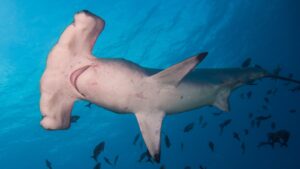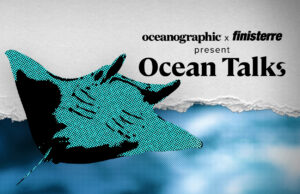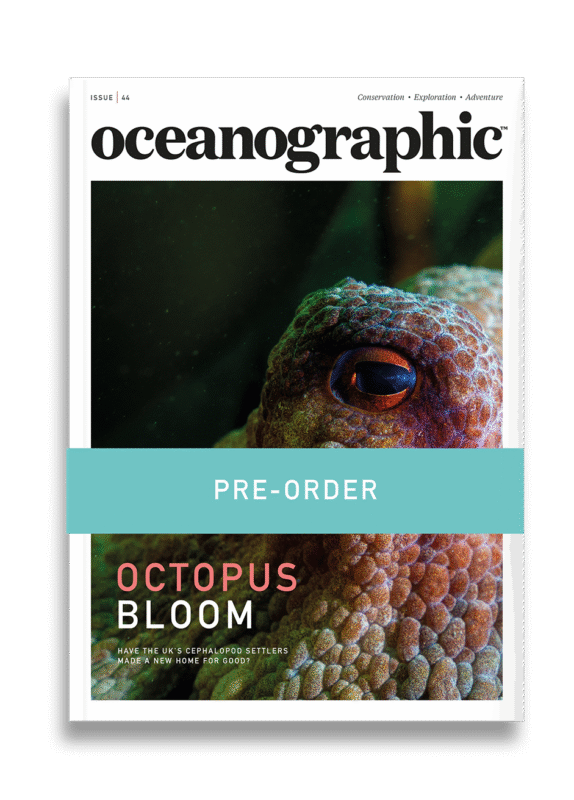Critically endangered shark being sold as food in US grocery stores
Meat from great hammerhead sharks, scalloped hammerhead sharks, and tope - species all listed as Critically Endangered by the IUCN - has been found in samples taken from grocery stores, seafood markets, and online vendors across North Carolina in the US.
US shoppers with a taste for shark meat found at grocery stores, seafood markets, and online vendors are more often than not consuming endangered species that have been erroneously labelled, a shocking new study has revealed.
According to research from the University of North Carolina at Chapel Hill, as much as 93% of the study’s samples were found to be either ambiguously labelled or mislabelled entirely and included meat from 11 different shark species.
Among those identified were the great hammerhead and scalloped hammerhead sharks both of which are listed as Critically Endangered by the International Union for Conservation of Nature (IUCN). And, despite global declines in shark populations, their meat was found to be sold to American consumers sometime for as little as $2.99 per pound.
The study’s first author and co-instructor of the seafood forensics class that conducted the research, Savannah Ryburn Ph.D, said both mislabelling and ambiguous labelling remove the ability of the consumer to choose what they are purchasing and consuming.
“For example, two species in our study – scalloped hammerhead and great hammerhead – were ambiguously labelled as ‘shark’, even though they are strongly advised against such consumption due to their very high mercury levels,” said Ryburn. “Without accurate and precise labelling, consumers cannot avoid purchasing these products.”
Shark meat is known to contain high levels of mercury which can pose serious risks to human health, particularly for children and pregnant mothers. Meanwhile, the conservation status of species such as great hammerhead sharks and the scalloped hammerhead sharks lists them as critically endangered, with some areas showing population drops of somewhere between 90 and 98%.
The study – now published in Frontiers in Marine Science – found that out of the 29 products tested, 27 were simply labelled as ‘shark’ or ‘mako shark’, without a species designation. Even among the two products that were labelled with a species name, one turned out to be incorrect.

It all highlights the major gap in seafood transparency and consumer safety, says the study’s authors.
“The United States should require seafood distributors to provide species-specific names for the products being sold,” said John Bruno Ph.D, a co-instructor of the seafood forensics class at the University of North Carolina at Chapel Hill.
The study contributes to a limited but growing body of research using DNA barcoding to investigate the accuracy of shark product labelling in the US while its authors join those calling for stronger regulations and oversight of seafood labelling practices not just in the US but worldwide.
“Sharks such as great and scalloped hammerheads are the ocean’s equivalent of lions, and we were shocked by how cheaply the meat of these rare, long-lived apex predators was sold,” said Ryburn. “Some samples were only $2.99 per pound.”
Samples analysed in the study included 19 filets sold in grocery stores, seafood markets, and Asian specialty markets – mostly in North Carolina – and 10 ordered online as ‘jerky’. Some 93% of those samples were ambiguously labelled while of the two that were labelled to species, one incorrectly labelled itself as blacktip shark when it was, in fact, shortfin mako shark.
Overfishing has caused dramatic declines in shark populations worldwide. As a result, one-third of shark species are threatened with extinction and designated as Critically Endangered, Endangered, or Vulnerable by the IUCN. A recent study found that despite international efforts to conserve and protect sharks, global shark mortality from fishing is still rapidly increasing.
Sharks are not just harvested for their meat but also for by products such as squalene which is commonly used in moisturising skincare products. In many regions they are targeted specifically for their culturally and economically valuable fins. Although shark finning is generally considered the main threat to shark populations, the market for shark meat has been increasing globally. In fact, it has now surpassed the market for fins in terms of both volume and value.
“The troubling growth in the global trade of shark meat is due to several factors, including growing consumer demand for seafood, the overfishing of other stocks, and – quite perversely – regulations designed to reduce shark finning,” the study’s authors said.


"*" indicates required fields
Printed editions
Current issue
Back issues

Back Issues
Issue 43 Sir David Attenborough’s ‘Ocean’

Back Issues
Issue 41 Holdfast to the canopy
Enjoy so much more from Oceanographic Magazine by becoming a subscriber.
A range of subscription options are available.








